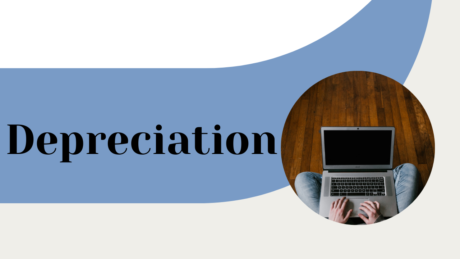Table of Contents
Meaning of depreciation-
Various types of Assets are used in the business, Some of them are permanent in nature, such as building, machine, furniture, plant, typewriter, computer, etc. These Assets have been used continuously for many years in business. Due to the continuous use of these assets, wear and tear, expected obsolescence, exhaustion of the original substance, and permanent falling market value, the gradual and permanent decline in the value of these assets is called depreciation.
Meaning and Advantages of Double Entry System
Definition of depreciation-
According to R.N. Carter, “Depreciation is the gradual and permanent decrease in the value of an asset from any cause”
According to J.R. Batliboi, “Depreciation means the permanent decline in the value of assets due to wear and tear or from any other cause.”
According to R.G. Williams, “Depreciation may be defined as a gradual deterioration in the value of assets due to use.”
Meaning of depreciation
“The gradual and permanent decrease in the value of fixed assets(Non-current Assets) due to normal wear and tear; passes of time and expected obsolescence in technology, known as depreciation”.
20 transactions with their Journal Entries, Ledger and Trial balance
Meaning of depreciation
In other words, the process of allocation of the cost of a fixed asset over its useful life is known as depreciation.
For example, an office chair is purchased for Rs. 25,000 .The useful life of the chair is ten years over which the cost of Rs 25,000 will be distributed. Each year’s allocation may be calculated as Rs. 2,500. Thus, Rs. 2,500 is the depreciation expense for each year.
Features of depreciation –
1. Decrease in the Book Value of Fixed Assets(Non-Current Assets).
2. Depreciation is a non-cash expense because it does not involve any outflow of cash.
3. Depreciation is a continuous process of reduction in the value of the fixed assets(Non-Current Assets).
4. Depreciation is a charge against profit, i.e., depreciation is charged even if the firm is at loss.
5. It is a gradual and continuous decrease in the book value of the asset over its useful life.
6.It is a decrease in the book value of the asset and not the market value of the asset.
7. Depreciation is an ongoing process until the end of the life of assets.
Meaning of depreciation
Causes of depreciation –
- Continuous use of assets
- Due to wear and tear of assets
- Due to Accidents
- Due to the obsolescence of assets (change in technology)
- Because of the elimination of the original substance
- Due to market prices falling permanently
- passes of time
Meaning of depreciation
Objectives of Charging depreciation –
- To determine the correct net profit/ loss
- To prevent a shortage of capital
- To show the true and fair value of assets in the balance sheet.
- The facility in replacement of new Assets/property
- To avail of income tax exemption
- For ascertaining the true cost of production
- To meet the legal requirements
Meaning of depreciation
30 transactions with their Journal Entries, Ledger, Trial balance and Final Accounts
Things to keep in mind while calculating depreciation-:
1. The cost price of Assets- Cost price does not mean only the purchase price of the property but also includes expenses for bringing and setting up of the property.
For example- A machine purchased at Rs. 50,000, Carriage paid on machinery Rs. 5,000 and Rs. 10,000 in setting up, the cost of the machine will be Rs. 65,000.
2. Estimated useful life of Assets: The amount of time a property is likely to run is called the estimated life span of the property/Assets.
3. Residue value or residual value- The value at which a property or asset is likely to be sold after a certain period is called the residual value/scrap value of the property.
Trial Balance: Definition and methods
4 . Obsolescence of the assets…….
5. Tax provision……….
6. Accounting law provision……….
Basic Accounting Terms – 23 Important terms
Meaning of depreciation
